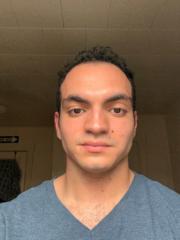Activity
Mon
Wed
Fri
Sun
Jan
Feb
Mar
Apr
May
Jun
Jul
Aug
Sep
Oct
Nov
Dec
What is this?
Less
More
Memberships
Quantum Engineering Lab
25 members • $29/m
6 contributions to Quantum Engineering Lab
I'm doing something super challenging and I'll be gone for ~12 days
HI guys, I'll be gone from 11/19/2025 - 11/30/2025 and I won't be able to be online at all. Watch the video to find out what I'm doing for those days.

There’s only 75 days left in 2025. What would make them most impactful for you?
Hey everyone, with only 75 days left in 2025, I found myself doing some reflection this morning on how I could make them most impactful. 💪 Comment below: What’s the most important thing you’ll make progress toward in the last 75 days of 2025? I split mine up into 2 main categories: work and life. For work, I will dedicate more time to improving the usefulness and value of this community to all of you here. - be active on here nearly every day - Finish the v1 roadmap course and ship modules fast for feedback - Post a youtube video weekly For life, I will explore deeper depths of my mental health and motivations to build a more present, peaceful, and clear life. I’d love to hear one thing from you guys on how you will make the last 75 days of 2025 most impactful for your personal growth. It doesnt necessarily need to be quantum related. Often, “life stuff” like focusing on your mental health can provide more benefits overall than always focusing on “work stuff”.
3 likes • Oct 20
For work I've learnt a whole lot at my current job and am super grateful, but I don't see myself staying with this company long-term so my goal is to get the startup a friend and I are working on to a point that I can quit my job this year. For life my main goal is also a peaceful mind - continuing my daily meditation and reading but beyond the routine, genuinely analyzing my thoughts whenever I stray away from a clear mind so I can improve. And I wanna be able to do a set of 10 strict-form dragon flags at the gym :)
Resume Help for Job/Internship Applications
Hi guys! I hope everyone has had a successful week. I am currently working on tailoring my resume as I am applying to quantum engineering jobs/internships. I need some help with my resume which I have attached below. Some questions I have are what should I focus on adding/ removing from my resume? From an employer's standpoint, what is missing in this resume? and how can I best utilize the current skills that I have developed to communicate my readiness for working in quantum? Any input would help as I don't have much experience with this :-/...
1 like • Sep 30
Looks great Niko, your experience in engineering hardware/low-level systems is definitely coming nicely. That's not my field of knowledge but one suggestion I have is if you know specific metrics for the impact of your work at the lab, ex. is it possible to quantify how much you "enhance the time resolution"? I know that's something employers like, even if they don't understand the specific units but percentages work great
How did you first become interested in Quantum Computing in the first place?
What was your initial drive to want to build a career in quantum computing? It’s not like CS where it’s perceived as an “easy career that pays well”. For me, I started with the simple notion “I like computers, and quantum computing seems like a more interesting and advanced version of normal computers”. Of course my first inclination was a little naive, but that’s OK. It eventually grew into a genuine passion. I feel like everyone’s interests originate from some visceral and unconscious gut feeling and can build to a true passion with real experience. What was your gut feeling that has drawn you in to quantum computing? I shared my naive start, so it’s OK if yours is simple too.
2 likes • Sep 19
In high school I had gotten really into coding and had also seen a bunch of YouTube videos on quantum physics which I thought were super cool and unlike anything else I'd learned about. Once I heard about quantum computing this idea of using the crazy physics properties to accelerate computing really resonated with me. Definitely also a gut feel like yours at first Ari.
Hey I’m Milind, excited to meet you all!
I'm a CS undergrad student at UW-Madison, and a developer working on ML and quantum computing applied to chemistry at Molecular Quantum Solutions. A big challenge I faced in navigating a quantum career was landing my first internship/job in quantum a couple years ago as a 18 year old coming from a SWE background. I knew quantum software was what I wanted to work on, and it would be hard to get a job at a big company being that young so I looked at dozens of quantum startups of interest to me and sent personalized cold emails, talking about my SWE experience and side-projects in quantum. One eventually replied (MQS), and initially it was rough having to work for free for a couple months to prove myself in a new field, but it's been 100% worth it over the last couple years as I'm learning so much in quantum computing applied to chemistry and AI/ML, as well as gaining a really good experience in startups/entrepreneurship. Before I thought of working at a startup as a stepping stone to a larger company, but I've enjoyed the fast-paced development environment so much that I now see it as preparation for me to start my own company in the future. I know Ari from working with him at the Wisconsin Quantum Computing Club he founded, and am grateful to be part of this community with you all.

2 likes • Sep 10
@Ari Noori For sure bro. I would say in my experience being impactful at a startup has boiled down to these 3 things; these are nontechnical skills because I feel like anyone with enough technical foundations that's passionate and has these qualities will be able to learn by themselves on the job. 1. Hustle. In a small startup you're talking to the CEO daily, they see who's clocking out at 5 and who's putting in the extra effort to hit deadlines no matter what. Someone who focuses on getting stuff done instead of # of hours worked, and that can work and learn independently without being a time burden on the CEO is super valuable. My boss has mentioned these qualities multiple times when comparing the few employees at our company and who he wants to keep long-term. 2. Agency. Don't feel like you have to ask for permission for every small thing you're doing, have a bias towards action while of course talking to your co-workers and asking for advice/approval when really needed. At a startup you'll provide much more value if you look for ways to improve your product/research that go beyond just what your boss told you to do; your boss has a lot of other stuff on their plate other than building the tech, and you likely know way more of the details about what you're building. 3. Humbleness. Especially if you're an undergrad with less experience, if you can financially you should be willing to take lower pay initially than a different job you can get, knowing that working in this industry will pay off long-term. Getting to work in a job that's conventionally for more experienced/older people will definitely pull you up in your career, and once you prove yourself you will get compensated fairly or now be able to apply for similar roles elsewhere and get the better compensation. People often say you should give FOMO to employers instead of acting desperate and that is completely true once you have experience, but when you're early in undergrad it makes sense to explain how you want to learn with a certain job and that you're willing to take less to start.
1-6 of 6
@milind-upadhyay-4684
ML and Quantum Computing Dev @ Molecular Quantum Solutions, Computer Science student @ UW-Madison
Active 29d ago
Joined Sep 9, 2025



